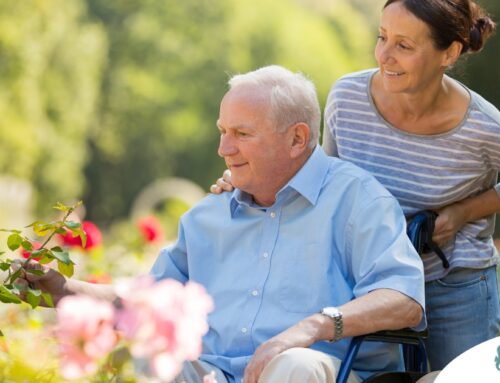As the U.S. population ages, the role of professional caregiving has never been more evident. For professional caregivers in Naples, understanding the intricacies of supporting clients is essential for better outcomes and higher job satisfaction. As a critical caregiving component, understanding what activities of daily living (ADLs) and instrumental activities of daily living (IADLs) are and how to efficiently address each client’s ADL needs is vital for maintaining their dignity and independence.
Read on to discover more about ADLs and IADLs and how to apply what you’ve learned while managing your clients’ activities of daily living needs.
What Are Activities of Daily Living?
Activities of daily living (ADLs) refer to the fundamental tasks needed for basic self-care, which are crucial for an individual’s health and functioning. Healthcare providers divide these tasks into basic areas encompassing an individual’s physical and personal care needs. Examples of ADLs include:
- Bathing: The ability to wash oneself and maintain hygiene.
- Dressing: The capability to put on and take off clothing.
- Eating: The process of being able to feed oneself.
- Toileting: The ability to use the bathroom independently.
- Mobility: The ability to move around safely, such as getting in and out of bed or walking.
No matter where they work, understanding ADLs gives caregivers a framework to evaluate which areas their clients may need support with, ensuring they preserve their dignity and independence.
Why Might Clients in Naples Need Caregiving Assistance to Perform ADLs?
Various factors can impede an individual’s ability to perform ADLs, necessitating caregiving support. Whether provided by family caregivers or paid professionals, these are common reasons why someone might need ADL assistance:
- Physical Disabilities: Conditions like arthritis or stroke can significantly limit mobility or fine motor skills. Caregivers may assist clients with tasks like dressing or bathing, ensuring these essential activities are safely performed.
- Cognitive Impairments: Disorders like dementia or Alzheimer’s can interfere with an individual’s memory and decision-making capabilities. A caregiver can help establish routines, prompting clients to engage in ADLs they might otherwise forget or neglect.
- Chronic Health Conditions: Conditions like heart disease, cancer, or diabetes may require clients to manage medications or dietary restrictions that make ADLs challenging. Caregivers can offer reminders and assistance in managing these aspects effectively.
- Age-Related Changes: As individuals age, they may experience a decline in vision, hearing, strength, or balance. These changes can hamper their ability to perform ADLs independently, requiring caregivers to step in for support.
- Mental Health Issues: Depression, anxiety, PTSD, and other mental health challenges can affect motivation and functionality in daily activities. Caregivers provide physical assistance and emotional support, encouraging clients and promoting a sense of purpose and engagement.
Recognizing these challenges allows caregivers to customize their approaches, helping clients navigate their specific needs seamlessly and compassionately.
ADLs vs. IADLs: What’s the Difference?
As a caregiver, it is vital to distinguish between ADLs and instrumental activities of daily living (IADLs). While ADLs focus on basic self-care, IADLs involve more complex tasks necessary for independent living.
Here are additional details for each type from a caregiver’s perspective:
Activities of Daily Living (ADLs):
- Bathing: Helping clients wash themselves thoroughly while respecting their privacy and dignity.
- Dressing: Supporting clients in selecting appropriate clothing and dressing independently or with assistance.
- Eating: Preparing nutritious meals or assisting clients with feeding themselves.
- Toileting: Helping clients use the bathroom and maintain hygiene.
- Mobility: Assisting clients with physical movement from room to room or changing positions safely.
Instrumental Activities of Daily Living (IADLs):
- Meal Preparation: Planning and preparing nutritious meals based on dietary needs.
- Housekeeping: Assisting with maintaining cleanliness and managing home environments.
- Transportation: Providing or coordinating travel for medical appointments, shopping, or social activities.
- Medication Management: Ensuring clients take their medications as prescribed.
- Financial Management: Helping clients manage finances, such as paying bills, budgeting, and sorting important documents.
Understanding these distinctions helps caregivers recognize where their support is most needed, empowering them to honor their clients’ wishes.
The Joys of In-Home Caregiving: Elevating the Client Experience Through Tailored Activities of Daily Living Solutions
Compared to traditional healthcare settings, home care offers several benefits that can significantly enhance the client experience. Here are a few things in-home caregivers enjoy most about their jobs:
Personalized Care
Home care services are delivered using a tailored approach to ensure the client’s needs are met as circumstances change. Caregivers can adapt their ADL support to individual preferences and routines.
Comfortable Environment
As they say, “There’s no place like home.” Familiar surroundings can greatly improve a client’s emotional well-being, reducing anxiety and enhancing comfort during caregiving tasks.
Long-Term Relationships
Home care often enables clients and their families to develop ongoing relationships with caregivers, building trust and improving communication, leading to better care outcomes.
Scheduling Flexibility
Unlike rigid institutional schedules, home care offers flexible hours that can be adjusted according to the client’s needs, allowing for a more responsive and adaptive caregiving approach.
Smart Technology Integration
Home care providers can seamlessly incorporate smart technologies into their services, such as health-monitoring devices, medication management apps, and personal emergency response systems (PERS), making it easier for caregivers to provide support while promoting the client’s independence.
Embracing these advantages helps in-home caregivers optimize their effectiveness and responsiveness, ultimately leading to improved client satisfaction and health outcomes.
Navigating ADLs and IADLs for Better Client Support: Applying What You’ve Learned
As the caregiving landscape evolves, understanding the distinctions and importance of ADLs and IADLs is vital for any professional caregiver’s success. By recognizing the physical and cognitive challenges that may keep clients from performing ADLs, caregivers can safely
provide tailored support that respects each client’s privacy and self-esteem.
Home care serves as a powerful platform for delivering personalized, flexible care while incorporating smart technology to aid clients in their daily lives. As caregivers navigate this complex landscape, their dedication, knowledge, and adaptability will be vital in advancing environments where older adults can thrive in the comfortable surroundings of their homes.
Equipping themselves with the above insights empowers in-home caregivers, allowing them to support their clients effectively as they age in place with dignity and independence. In a world where the aging population is growing rapidly, the role of caregivers has never been more evident, as they touch clients’ lives and enrich their communities!
Caregiving Professionals Needed to Join Our Winning Home Care Team in Naples
If you are a caregiver who values the importance of distinguishing between ADLs and IADLs, SeaSide Home Health Care in Naples would love to speak with you. At SeaSide Home Health Care, we understand that our caregivers are the lifeblood of our organization. Due to our expanding client load, we are currently seeking qualified candidates to fill several exciting caregiving roles. While proudly serving the Naples, Fort Myers, and Charlotte County communities, we support clients and families with a comprehensive lineup of dignified home care services including Alzheimer’s & Dementia Care, Companionship Services, Personal Care Services, Meals and Nutrition, Transportation, Household Duties, Respite Care, Hospice Care Support Services, 24 Hour Care, Diabetes Care, Arthritis, Diabetes, and Other Conditions Care.
As a highly valued member of the SeaSide Home Health Care team, you’ll enjoy a fast-paced, positive work environment where open communication is valued and hard work is rewarded. We also offer competitive pay, flexible scheduling, ongoing caregiver skills training, and career advancement opportunities galore. No matter your experience level or education, we’d love to hear from you!
To learn more about us and our dynamic caregiving jobs, visit www.seasidehomehealthcare.com.





